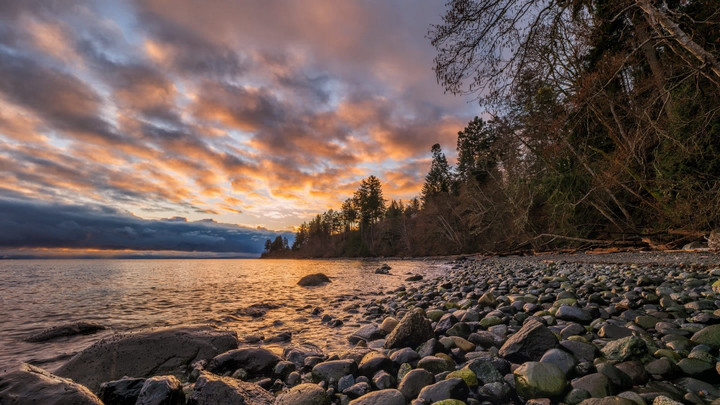SSHRC-funded music education conference at UVic seeks to weave Indigenous knowledge into K-12 provincial music curriculum
May 20, 2022

On May 9 & 10, 2022, UVic’s Faculty of Education will host and facilitate a music education conference entitled: Everything is Connected: Songs, relationships and Indigenous Worldviews. The two-day conference will bring together K-12 music educators with Indigenous leaders, Knowledge Keepers and culture bearers from school districts across BC, to connect and explore ways of embedding locally relevant Indigenous teachings into classrooms.
The purpose is to stimulate a province-wide conversation on how to embed Indigenous ways of knowing and being in music education classes in a way that is culturally appropriate to each location. Around two hundred attendees will meet in person in the Michele Pujol Room at UVic on traditional lək̓ʷəŋən territory, with more attending virtually. The objective of this conference is aligned with the Professional Standards for BC Educators, specifically the ninth recommendation which emphasizes an educator’s responsibility to help students achieve a deeper understanding of Indigenous ways of knowing.
The conference is an example of community-based participatory research, guided by an engaged steering committee. The steering committee is comprised of twenty-one members from eight research partner organizations working together: Victoria Native Friendship Center, BC Ministry of Education (Indigenous Branch), BC Music Educators’ Association, School District 61 (Greater Victoria), School District 83 (North Okanagan-Shuswap), Pacific Opera, University of British Columbia, and the University of Victoria.
Creating a steering committee
BC is home to over two hundred First Nations and Métis groups with thirty Indigenous languages, and the greatest diversity of Indigenous groups nationwide with seven of twelve Indigenous language families in Canada. Even still, colonial approaches to teaching still exist on many levels within the current BC curriculum.
Several years ago, 66 stakeholders, including 40 Indigenous people representing 19 Nations, came together in multiple sharing circles to imagine how music education in BC could be reimagined to include Indigenous worldviews in a way that is culturally appropriate to each location. From these sharing circles, members suggested continuing our community-based participatory research – using conference as a research method – and establishing a steering committee for this project.
Conference & workshops
Each day of the conference will begin with opening protocols, a traditional welcome and words from an invited speaker. The first day will begin with a welcome by a local Elder, a performance by the lək̓ʷəŋən Traditional Dancers, introductions, and opening remarks by UVic President Kevin Hall. Carey Newman (Kwakwak’awakw/WaWalaby/Stó:lō), UVic Impact Chair in Indigenous Art Practices, will provide an invited talk. Artistic performances by Cris Derksen (Cree) and SGaanaGwa (Haida) will round out the first day. The second day will begin with a welcome by Carmen Dick (Songhees), followed by words from invited speaker Steven Point (Stó:lō), UBC Chancellor.
Several workshops over both days will facilitate the exploration of concepts and teaching methods. One workshop, Singing Dreaming Songs into Reality, will be facilitated by Garry Oker and will address how traditional Indigenous languages and songs can drive musical innovation.
Another workshop, 'Building Community—Indigenous Drum Making Legacy Project', will be presented by Ruby Ba and Suzi Bekkattla and will explore community building through Indigenous musical knowledge. With a focus on building meaningful relationships, conference attendees are strongly encouraged to share and converse with one another both in and outside of the planned workshops.
"I have a goal of building a school music program that aims to decolonize the hierarchy in music and Indigenize an equitable learning environment. I am looking forward to the opportunities to connect with other music educators with whom I can learn and exchange advice.
As a non-Indigenous person, I would like to lead by example to encourage everyone who lives on this land to share the responsibility of Truth and Reconciliation. I would like to bring my humble self to look for guidance and work with all those who commit to indigenizing music education. I am hoping to bring back what I learn from the conference to my school. I would love to share the experiences with my students, colleagues, and fellow music educators in the district.” - Ruby Ba
Learn more
More information about Everything is Connected: Songs, relationships and Indigenous worldviews can be found on the conference website.
Media Contact
Beth Tuinstra
